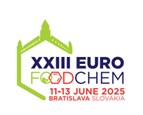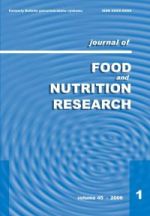Scientific journal
Journal of Food and Nutrition Research
Summary No. 3 / 2016
Wei, Y. – Zhao, L. – Bai, C. – Jiang, Y. – Yuan, M. – Chen, L.
Dynamics of spoilage bacterial communities in fish cake evaluated by culture-dependent and culture-independent methods
Journal of Food and Nutrition Research, 55, 2016, No. 3, s. 270-277
Li Zhao, National Center of Freshwater Fish Processing Technology, Research and Development, Jiangxi Science & Technology Normal University, Fenglin Street 605, 330013 Nanchang, Jiangxi, China.
E-mail: lizhao618@163.com, tel.:+ 86 0791 83868310; fax: + 86 0791 83868310.
Received 13 May 2016; 1st revised 14 July 2016; 2nd revised 13 August 2016; accepted 30 August 2016; published online 14 September 2016
Summary: In order to study the spoilage-related microbiota of fried and boiled fish cakes, a combination of traditional plating, culture-independent and culture-based methods were used to analyse the fish cake stored at 4 °C. The population diversity was studied by selective agar cultivation, polymerase chain reaction-denaturing gradient gel electrophoresis (PCR-DGGE) of DNA directly extracted from fish cake and from bulk cells from plate counting media. No significant difference in spoilage bacteria between fried and boiled fish cakes could be found during storage period. Plate counts on selective agar showed that the major bacterial group was lactic acid bacteria. Flavobacteriaceae, Psychrobacter sp. and Pseudomonas poae were detected during the entire storage period in DGGE profile. The use of culture-independent method highlighted the species that were not detected by plating. In contrast, culture-based analysis detected bacterial species that were not found in DNA extracted directly from sample. This study confirmed that a combination of traditional plating, culture-independent and culture-based approaches could enhance understanding of the populations of spoilage bacteria.
Keywords: denaturing gradient gel electrophoresis; fish cake; diversity; storage
Download:
(pdf, 538.19 Kb, 1600x)










